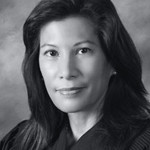‘Gold Rush’ On For Court Technologies
Debate Continues On Civil Jury Access, Reductions
Top Clerk Says Cuts May Hinder Cost-Saving Efforts
Chief Justice: We’re Basically Denying Justice
Gov. Brown Vetoes Limits On Court Outsourcing
By MARIA DINZEO
Judge Says Court Closures May Bring Violence
Reduced access to civil courts will mean that people take the law into their own hands, including using violence in their disputes, according to a Los Angeles Superior Court judge. Phil Mautino, who is the supervising judge for the Los Padrinos Juvenile Court, told a Republican Lincoln Club group that personal injury cases are going to take five years to get to trial while for traffic court “there’s a line that circles around the building.”
“It means if you’re not going to court, you settle (the issue privately). It means violence. It’s like the old days of vengeance where if you kill my brother, I’ll kill your sister,” the judge told the Whittier Daily News in a recent report. “If you‘re willing to stand in line for a day or two, the officer may not show up [and] if you’re retired and plead not guilty, you have might have a good chance of getting off.”
The Whittier courthouse was among the eight closed this year while two others have very limited services. All traffic court cases now are heard at the downtown Los Angeles and Beverly Hills court houses, small claims is limited to five courts (Downey for the Whittier area), and landlord-tenant evictions are divided between four courthouses.
Gov. Signs Law, Illegal Immigrants Can Become Lawyers
Sacramento County Superior Court faces ‘tremendous challenges’ according to newly elected Presiding Judge

Sacramento Superior Court Judge Robert C. Hight. (Photo credit: SUPERIOR COURT OF CALIFORNIA, COUNTY OF SACRAMENTO, COURT BULLETIN)
The Sacramento Bee reports that Sacramento Superior Court Judge Robert C. Hight has been elected as the court’s presiding judge, replacing the outgoing Presiding Judge Laurie M. Earl. The two-year term begins on January 1, 2014.
“Our court faces tremendous challenges,” Hight said in a news release. “Over the past four years, the Legislature reduced funding for the Judicial Branch by $1 billion. For our Sacramento County Superior Court, this was a reduction of almost 25 percent, resulting in the loss of almost 200 staff positions. Unless next year has projected budget changes, we face further cuts. Our judges and dedicated staff have been asked to do more with less. Our challenge is to continue providing the citizens of Sacramento with access to justice that is fair, timely and open to all.”
Backlogs Prompt Some Courts To Re-hire
Jury Reform Ideas Beginning To Surface
Jenkins, a regular CityWatch contributor who is also noted as chair of the Northeast Valley Green Coalition, spices up her policy observations with some first-person tales of jury duty. Her experience has the sound of truth, but it’s not exactly reassuring. She makes a case for non-citizens to serve on juries and calls for a new state law that will focus on “a jury of our peers” meaning more than just “those who did not evade jury duty.”
Of course, she is mostly dealing with criminal cases, not civil. But the jury pool overall is going to become an increasingly over-worked resource as more trials are held in centralized locations that require both seated and prospective jury members to travel longer distances. Read the ideas here.
